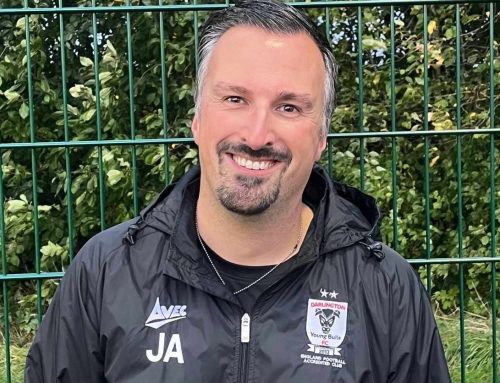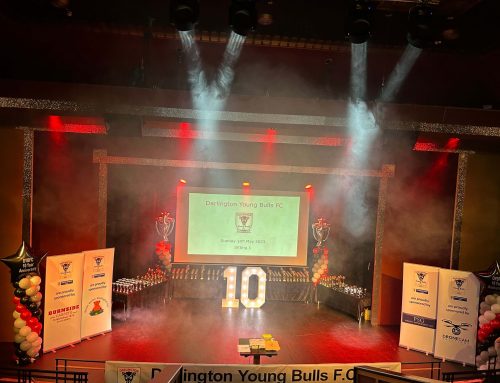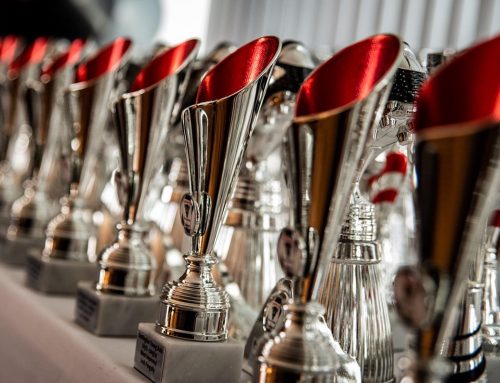My route into coaching was unintentional as I enjoyed my playing days as a semi-professional footballer and was happy to be a spectator supporting my son. But after my 10 year old son Sean joined a local team which disappointed us by not joining a league as promised that season – with a couple of other parents we formed Darlington Young Bulls FC one cold night, in my friends kitchen in 2013.
The rest is history for Young Bulls as a club, however the journey had only just started for us. I was the Club’s Welfare Officer for a few years, and soon completed my coaching badges.
Starting at U11s in the TJFA Division 7, the team moved up year on year, winning a few trophies and promotions along the way and propelled up to Division 1 – albeit a few hammerings taken along the way by my team!
But winning trophies was not the motivation for me, it was building a footballing philosophy and developing players that motivated me! As a striker myslef, I was conflicted with my team scoring perfect goals whilst being tactically balanced. The UEFA coaching badges helped to refine this playing philosophy, with a possession based approach which soon became a philosophy that defined my approach.
My teams were however not always blessed with attracting “star players” at first, but the playing style soon paid off with higher division players choosing to join the team. At U15s we signed two girls who played for us for two seasons with one of them going on to play for the lionesses at U18 level!
Having coached my team from U11s to U23s and now as Darlington Young Bulls first team, I reflect on the many learning opportunities I got along the way. I feel there is never a bad coach out there, a good coach always has an eye to pick up good habits from other coaches. But I have witnessed many coaching colleagues though being driven by silverware!
My exposure to coach and train at a high level including northern league, has not changed my coaching philosophy, but rather moulded me as a critical thinker tactically.
My advice to any aspiring coaches is to know what your football identity is, your key short sharp points to make when aiming to improve players, the importance of discipline and that more than 50% of a players ability is not talent, it’s determination and desire to do the simple things on the pitch better each time. This mindset is best moulded by coaches paying attention to developemental needs of each player, but also being honest and their feedback to players.
My football passion though is steeped deeply in fairness, equality and respect. Football is a sport for all, with no one inferior. Teaching children at a very young age about equality and fairness is just as important for them to become not just a great player – but also great human beings.
Darlington Young Bulls has given me that platform to both be an advocate for diversity as well as a role model to aspiring coaches and players.
A good coach is not epitomised by how many trophies or games they have won, but how many players leave that training pitch happier each time they come to train or play matches.
I owe my development as a coach to none other than my club, fellow coaches, supportive parents, committee members and most importantly the kids who week in week out have trust in my sometimes outlandish tactics to improve them.
Joe Chidanyika

















